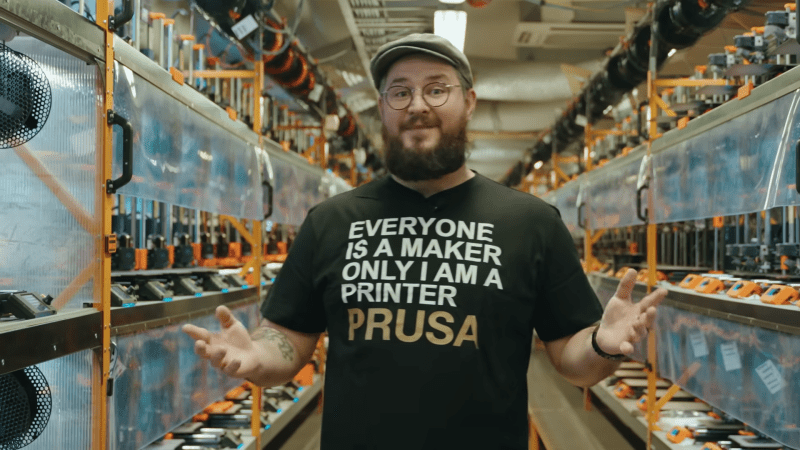Josef Prusa Warns Open Hardware 3D Printing is Dead
It’s hard to overstate the impact desktop 3D printing has had on the making and hacking scene. It drastically lowered the barrier for many to create their own projects, and much of the prototyping and distribution of parts and tools that we see today simply wouldn’t be possible via traditional means.
What might not be obvious to those new to the game is that much of what we take for granted today in the 3D printing world has its origins in open source hardware (OSHW). Unfortunately, [Josef Prusa] has reason to believe that this aspect of desktop 3D printing is dead.
If you’ve been following 3D printing for awhile, you’ll know how quickly the industry and the hobby have evolved. Just a few years ago, the choice was between spending the better part of $1,000 USD on a printer with all the bells and whistles, or taking your chances with a stripped-down clone for half the price. But today, you can get a machine capable of self calibration and multi-color prints for what used to be entry-level prices. According to [Josef] however, there’s a hidden cost to consider.
(Data from Espacenet International Database by European Patent Organization, March 2025) – Major Point made by Prusa on the number of patents from certain large-name companies
From major development comes major incentives. In 3D printing’s case, we can see the Chinese market dominance. Printers can be sold for a loss, and patents are filed when you can rely on government reimbursements, all help create the market majority we see today. Despite continuing to improve their printers, these advantages have made it difficult for companies such as Prusa Research to remain competitive.
That [Josef] has become disillusioned with open source hardware is unfortunately not news to us. Prusa’s CORE One, as impressive as it is, marked a clear turning point in how the company released their designs. Still, [Prusa]’s claims are not unfounded. Many similar issues have arisen in 3D printing before. One major innovation was even falsely patented twice, slowing adoption of “brick layering” 3D prints.
Nevertheless, no amount of patent trolling or market dominance is going to stop hackers from hacking. So while the companies that are selling 3D printers might not be able to offer them as OSHW, we feel confident the community will continue to embrace the open source principles that helped 3D printing become as big as it is today.
Thanks to [JohnU] for the tip.
hackaday.com/2025/08/13/josef-…




